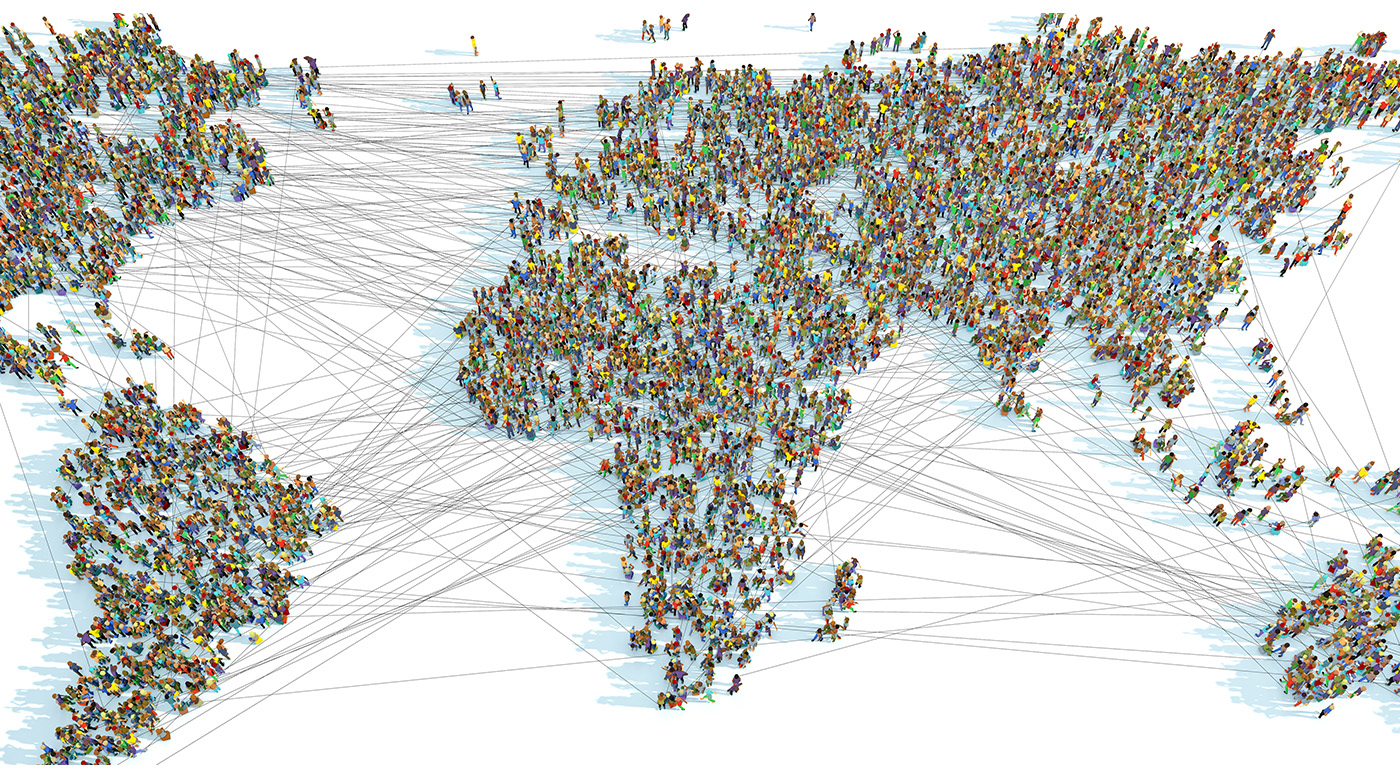Is the Internet Fragmenting or Just Evolving?
Are the worries about the Internet becoming increasingly fragmented unfounded? Is it just evolving? ISOC’s Robbie Mitchell reports.

Copyright: ©blackdovfx| istockphoto.com
How sustainable is the structure of the Internet itself? Concerns about the Internet fragmenting into multiple, disconnected and non-interoperable networks have been raised and discussed within Internet governance forums for nearly a decade, including at the Internet Governance Forum (IGF) in December 2022.
Many in the technical community, including the Internet Society, have worked to quell these concerns, pointing to the difficulty of developing unique protocols that might replicate the tasks of TCP/IP and DNS, two of the foundational protocols of the Internet.
However, a decade-long rising tide of nationalism and technical development, combined with recent internal and international conflicts, has showcased how such ‘splinternets’ can work. Most notable among these are the national networks that China, Iran and Russia have developed, which can block their residents from accessing the wider Internet but continue to serve them local and/or highly controlled content and services.
In November 2022, The Internet Society’s President and Chief Executive Officer, Andrew Sullivan, joined a panel discussion hosted by the Columbia Institute for Tele-Information to discuss the current forms and consequences of Internet fragmentation and whether this is more than a sign for concern or if it is a natural step in the evolution of the Internet.
Other panellists included Internet Hall of Famer, Vint Cert, and William (Bill) J. Drake, Director of International Studies at the Columbia Institute for Tele-Information.
Is (Internet) fragmentation a bad word?
In 2016, Bill Drake and Vint Cert, along with Wolfgang Kleinwächter, co-authored the White Paper Internet Fragmentation: An Overview. A key component of this paper defines what Internet fragmentation means from a technical, governmental, and commercial standpoint to provide a “holistic overview” of its nature and scope and “more readily engage in the sort of dialogue and cooperation that is needed”.
Reflecting on the paper and years of discussions since, Bill believes this need to define the term and frame the discussion is as important as ever.
“Words have consequences. Framing has consequences. And we need to… have more productive discussion[s] where we get the different types of perspectives talking to each other and try to understand at least areas of disagreement.”
Vint continues to share Bill’s belief noting that “fragmentation is not a bad word to use. But as you point out, we need to understand what is intended by that term.
“[I]n my view, the original Internet design intended a great deal of uniformity…That uniformity, of course, has become broken. And it’s broken in many different layers in the architecture.”
Fragmentation Without Technical Consideration
For Andrew Sullivan, his concern is less about the technical semantics and more to do with governments and large private entities imposing themselves in such a way that the public can’t take advantage of the end-to-end facilities of the Internet.
“Some of them have to do with shutdowns. Some of them have to do with data localization policies. Some of them have to do with sender pay arrangements. Some of them have to do with the idea that you can draw a boundary around pieces of the Internet and say, ‘this stuff we’re going to allow and that stuff out there is in no man’s land’. I think that’s where the danger comes.”
Decentralization – the Internet has evolved
The discussion continued on the theme of semantics with one audience member providing the following thought: “What we’re witnessing is decentralization, which is kind of natural at this stage and evolution of the history of the Internet.”
Eli M. Noam, Director of the Columbia Institute for Tele-Information and Professor of Finance and Economics at Columbia Business School, shared this viewpoint, adding that “the single Internet was a good system in the past but not necessarily in the future. What we’re now experiencing is a return to the normal…part of the Internet is a disruptive force [which] is disrupting itself too because it is so powerful.”
Inform decision-makers about how the Internet works
Each panellist concluded that advocates against fragmentation had to continue to trust the process and continue to inform decision-makers about how the Internet works and the importance of the Internet governance model.
Tatiana Tropina, Assistant Professor in Cybersecurity Governance at the Institute of Security and Global Affairs at Leiden University, sees the latter of these as particularly important when it comes to discussions with governments pointing to how government policies trying to tackle the DNS, such as DNS4EU, or standards “might erode trust in the current model of governance. This might not immediately result in the loss of connectivity like alternative routes would. But it might lead towards a narrower sense of what Internet fragmentation is.”
Given the backdrop of the last three years, Vint feels that governments, more than ever, need to recognize the importance of cooperation and uniformity when tackling major issues such as the Covid-19 pandemic and global warming.
“We need more cooperation. We don’t need fragmentation. We don’t need isolation. We don’t need to circle the wagons. The Internet needs to be there and in place and available to help us solve these problems.
“I think we need to find ways of preserving the properties that have made the Internet valuable, and that is largely the free flow of information and the uniformity that the Internet has attempted to introduce, while at the same time recognizing that there are harmful behaviors that use this neutral platform and amplify harmful effects.
“We have to help governments respond to that and we have to find ways to do that and still preserve the utility of the Internet. This is a non-trivial exercise, and I think we’re going to end up looking for international cooperation to achieve the objective.”
This article is based on an article first published on https://pulse.internetsociety.org/blog/is-the-internet-fragmenting-or-decentralizing-or-both and has been published here with the kind permission of ISOC and the author.
Read more articles on Internet Governance on dotmagazine.
Find more information about Internet Governance on eco International.
Robbie Mitchell is a communication and technology advisor with the Internet Society. His background is in science (biotechnology) and science communication (master’s in science communication, Australian National University). Prior to his time at APNIC he worked at Australia’s oldest science communication consultancy working on various communication, interpretive, and outreach projects related predominately to climate change and environmental and agricultural sciences.
Please note: The opinions expressed in Industry Insights published by dotmagazine are the author’s or interview partner’s own and do not necessarily reflect the view of the publisher, eco – Association of the Internet Industry.





